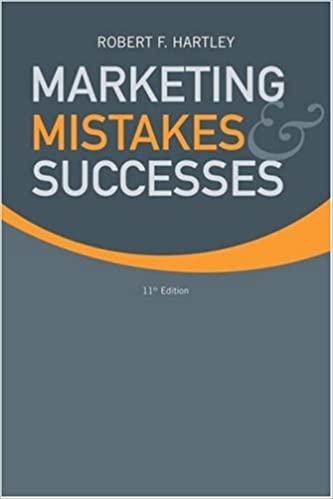Question
industrial training section 3 - Training Experience and Problem Solving Problem Identification Statement. Before you can proceed with the draft for Section 3 you are
industrial training
section 3 - Training Experience and Problem Solving
Problem Identification Statement.
Before you can proceed with the draft for Section 3 you are required to have a Problem Identification Statement.
The process of identifying your Problem Identification Statement begins with the First Internship Assessment Survey.
Objective of Section 3
The objective of Section 3 is for you to identify a systematic or systemic problem within the internship company and to propose a solution to that problem.
You will be attempting to solve the problem as an external consultant hired by the company.
A student must justify why the recommended solution is going to work. To achieve this, the student need to ensure that either:
1. The solution recommended by you has backing in the academic theory (what you have studied in the textbook), OR
Guidelines
Subheadings for Section 3
1. Situation and Environment
Description of Subheading: What is going on here? In this question you are required to provide an overview of the working environment. Give brief explanations of the people and the processes that takes place in addition to any other information that you believe would be useful for the reader to understand the environment. It could include physical descriptions or description of machineries and processes if necessary.
2. Problem Existence
Description of Subheading: Is there a problem at all? A lot of the times what we may think is a problem might not be a problem in reality. An issue can only be considered a problem if it has any impact on the outcome. Sometimes correcting the problem might change the entire outcome. Sometimes it might improve the outcome. But unless your problem fits into either one of these you can't really consider your selected issue to be a problem. The best way to answer this question is to ask the question "if this problem is solved would it make things better?"
3. Problem Analysis
Description of Subheading: What precisely is the problem? Once you are convinced that the issue at hand is a problem the next step would be clearly define what exactly the problem is. In this question you should zoom in on the problem and try to give as much details as possible to explain what the problem is.
4. Root cause of the problem
Description of Subheading: What has caused it? Try to identify what is the root cause of the problem? Differentiate between the cause and symptoms. If you have trouble understanding causes and symptoms please refer to this link:
(http://www.threesigma.com/problem_solving.htm)
5. Main Issues Caused by the Problem
Description of Subheading: What are the main issues? and why are these issues important? Even though you have identified the main issues it is important to understand why these issues are important. You should weigh the importance in terms of how these issues impact the business in respect to efficiency or profitability or on human motivation. If the issue has no impact on either than you might not want to declare that specific issue as a main issue.
6. Problem Ownership
Description of Subheading: Whose Problem is it? Often the people who suffer from the problem do not really own the problem. They are simply the people who are affected by the problem. So you need to figure out who actually owns the problem. Because a lot times you will find that the person who owns the problem does not know there is a problem because the effects of the problem is not seen to him. Often you might think that the top must be responsible. But you must consider that the top management is not involved with every minute detail of the work place.
7. Solution
Description of the Subheading: What are the solutions that you would recommend to solve the problem or to lessen the negative effects of the problem? In this section you are recommending a solution to the problem
Step by Step Solution
There are 3 Steps involved in it
Step: 1

Get Instant Access to Expert-Tailored Solutions
See step-by-step solutions with expert insights and AI powered tools for academic success
Step: 2

Step: 3

Ace Your Homework with AI
Get the answers you need in no time with our AI-driven, step-by-step assistance
Get Started


